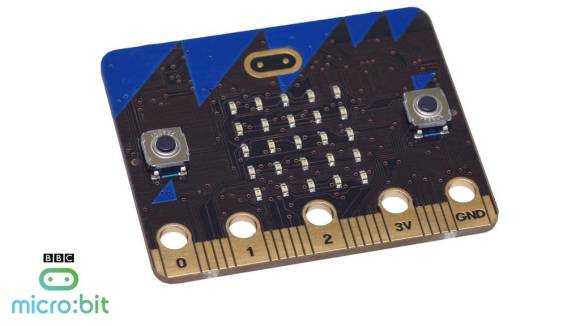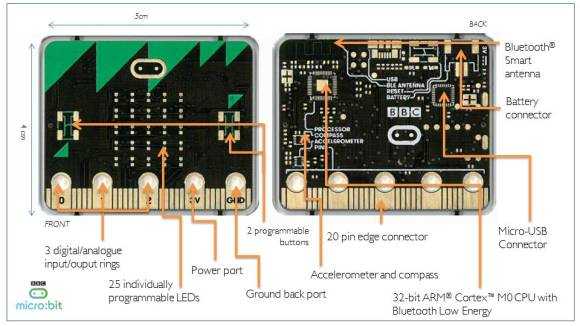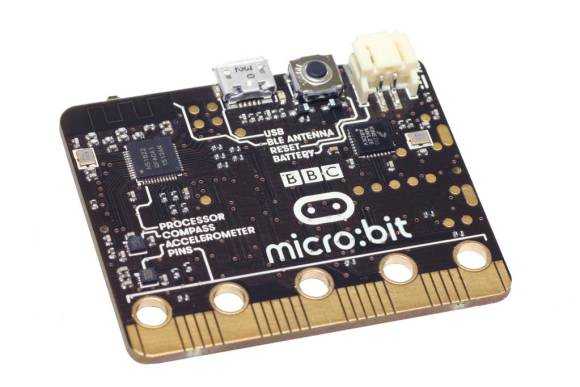The Micro:Bit has officially launched in the UK. It’s about as minimalist as you can make a computing device, including the cost which is so low that 1 million of them are being given to UK school children as part of a BBC-run project. The CPU uses an ARM architecture and there are sensors on board, digital and analogue ports, a 25 LED matrix, two programmable buttons, microUSB port and Bluetooth LE. It’s so small that you can wear it as a badge. How cool is that! Check out the video below.
From the press release:
- 25 red LEDs to light up, flash messages, create games and invent digital stories
- Two programmable buttons activated when pressed. Use the micro:bit as a games controller. Pause or skip songs on a playlist.
- On-board motion detector or ‘accelerometer’ that can detect movement and tell other devices you’re on the go. Featured actions include shake, tilt and freefall. Turn the micro:bit into a spirit level. Light it up when something is moved. Use it for motion-activated games.
- A built-in compass or ‘magnetometer’ to sense which direction you’re facing, your movement in degrees, and where you are. Includes an in-built magnet, and can sense certain types of metal.
- Bluetooth Smart Technology to connect to the internet and interact with the world around you. Connect the micro:bit to other micro:bits, devices, kits, phones, tablets, cameras and everyday objects all around. Share creations or join forces to create multi-micro:bit masterpieces. Take a selfie. Pause a DVD or control your playlist.
- Five Input and Output (I/O) rings to connect the micro:bit to devices or sensors using crocodile clips or 4mm banana plugs. Use the micro:bit to send commands to and from the rings, to power devices like robots and motors.
The CPU is based on ARM Mbed hardware and software which is free for commercial use. Freescale provide the sensors and micro-USB controller, Lancaster University wrote the runtime OS and Microsoft have created a tailored TouchDevelop web application and hosting service (IDE.) Nordic Semiconductor are supplying the Bluetooth chip and Samsung are involved with creating mobile apps for the Micro:Bit. Element14 are in charge of manufacturing, ScienceScope are handling the distribution to schools and the Wellcome Trust are running the educational content around the Micro:Bit. There are other partners too (29 in total.)
The web-based IDE will go live at microbit.co.uk later this summer and it will give the 11-12 year olds (and probably a lot of parents) the chance to create projects, run a simulator and program the Micro:Bit.
Will it be available to buy? Well the BBC have said that they will open-source the Micro:Bit but it’s not quite clear how ‘open source’ the hardware is yet, despite the ‘free to use’ Mbit core. We’ll work on getting that information, along with more technical details, as the launch progresses.
The Micro:Bit might not be an ultramobile PC as we see it here at UMPCPortal but it’s definitely worthy of a mention and indicative of the way that computing devices will shrink even more over time.













